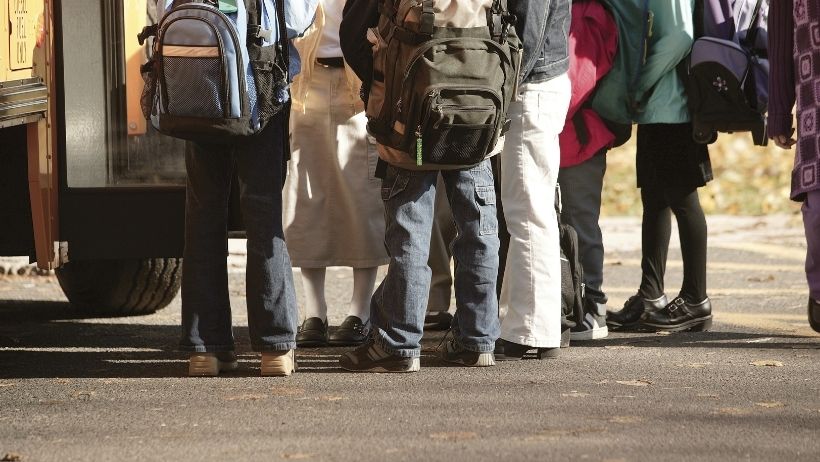For parents who are wondering whether boarding school is right for their child, there are several things you should know about the pros before deciding.
- Smaller class sizes: The average student-to-teacher ratio in a traditional public school is 20 to 1, while at boarding schools it’s around 10 to 1. This means that each student gets more individualized attention from teachers and staff members at boarding schools than he or she would if he or she attended a traditional public school instead.
- More exposure to new experiences: If your child has always lived in one small town where they’ve never had many opportunities to learn about other lifestyles or cultures, they might benefit from being exposed to those things at a boarding school. Having friends with different backgrounds can also help broaden your child’s worldview and increase his or her comfort level with people who have different beliefs than those held by family members back home
Smaller class sizes, more individualized attention from teachers
The benefit of smaller class sizes is that kids get more individualized attention from their teachers. For example, if one student is struggling with a particular concept and asks for help in class, the teacher can spend more time helping them instead of having to answer the same questions dozens of times throughout an hour-long lecture.
Not only does this mean that students have more time during class sessions to ask questions or receive feedback on assignments, but it also means that teachers have more opportunities throughout the day to check in with each student individually and see how they’re doing.
Students will be exposed to a variety of new and interesting things that they may not experience at home.
Boarding school students will be exposed to a variety of new and interesting things that they may not experience at home. When a child is living in an environment where they are surrounded by people who are different from themselves, they will undoubtedly learn something from them. This means that your child may gain knowledge about other cultures or lifestyles, which can help them become more well-rounded people.
In addition, boarding school often offers opportunities for students to pursue hobbies or careers that aren’t available in the community where they live. For example, if you have a son or daughter interested in engineering but doesn’t have access to engineering programs in their area at this time; sending them away for high school could give them access to such extracurricular activities at their boarding schools as well as potential internships and job openings once graduation rolls around!
Students will gain independence and life skills.
Boarding school forces students to learn how to take care of themselves and make decisions. Students are responsible for managing their finances, working through conflict, and making connections with others. They will also have the opportunity to do things they might not otherwise do, like laundry, cooking, and cleaning.
Students will learn how to manage their time and prioritize tasks to balance everything that boarding schools offer: sports practices, art classes, tutoring sessions, and social events. By the end of three years or so at a boarding school (if not sooner), your child should be able to look after themselves—something I’m sure you’ll appreciate!
Students are held accountable for their actions.
When your child is in a boarding school, he or she will be held accountable for their actions by their teachers and peers. This can be a good thing because it teaches students responsibility, which is something that more people need to learn. When students are held accountable for their actions, it makes them accountable for their behavior. This also helps them become more independent as well as improves their self-esteem because they know that they have to take care of themselves most of the time and solve problems on their own without assistance from others
Students are encouraged to take part in extracurricular activities.
Many parents choose to send their kids to boarding schools because they believe it will help the student become a better people. And there are some benefits to that belief—students who participate in extracurricular activities have been shown to have increased self-esteem, better social skills, and lower rates of depression.
Those opportunities can also provide students with a sense of responsibility, which can lead them to develop leadership skills and take on greater responsibilities later in life. These students may even end up doing things like getting into college or finding a job before their peers because they’ve gotten used to taking initiative at an early age.
Students often become part of a community that is far more diverse than their home community.
As your child will be attending classes and activities with students from all over the world, they will learn how to be tolerant and accepting of people who are different than them. They’ll also learn how to deal with differences in culture, language, food, and customs. In addition, they will gain a greater understanding of other cultures by being exposed to them regularly.
Students who attend boarding schools often become part of a community that is far more diverse than their home community may have been in terms of race or socioeconomic status. This means that students develop friendships with people who come from different backgrounds than what they might have experienced at home – which is an excellent way for kids (and adults) to see the world through another person’s perspective!
CONS
- Cost. The average boarding school tuition is $40,000 per year and can range as high as $60,000. If your child attends a boarding school that’s not affiliated with their home state (like many prestigious ones are), you’ll also have to pay for room and board—another $12,000 or so per year on average.
- Uprooting from family and friends. Boarding schools often encourage students to develop independence and maturity by separating them from their families during the week; this can be hard on both parents and kids who are used to being together every day.
- Not being around for holidays or special occasions. Boarding school students may miss out on important family celebrations like birthdays, graduations, kiddie soccer games, and Thanksgiving dinners…you get the idea! It’s also more difficult than usual for these kids to attend family gatherings because they’re typically not allowed off-campus during vacations (which is why we recommend private tutors as an alternative).
- Not being able to take part in community events or other activities that wouldn’t normally be open to the public—such as church services or camps—because they’re held at a different location than where most boarding schools are located (if you live near one of these places then consider yourself lucky!). You won’t know what it’s like until your child starts attending one but keep in mind that there will likely be fewer opportunities available when compared with living at home where there are lots more going on all around us every day without having any difficulty finding something fun happening nearby whether it’s just down our street block away from home every weekend afternoon through holiday breaks too!
Many schools have strict rules regarding cell phone use and internet access, which can be stressful for students who are accustomed to using these devices frequently.
- Some schools have strict rules regarding cell phone use and internet access, which can be stressful for students who are accustomed to using these devices frequently.
- Some schools allow cell phone use but have very strict rules regarding internet access.
- Some schools allow limited internet usage, but no cell phone use at all.
As you can see from these examples, it’s important to consider your child’s needs when considering boarding school options. If he or she is used to having an active social life through texting and Instagramming, it may be difficult for them to adjust if their school has very strict policies about communication with the outside world (and vice versa).
Learning to be independent can sometimes lead to bad habits in students without parental supervision.
When your children are in boarding school, they will have more freedom than they would at home. While this might be a good thing, it can also lead to bad habits in students without parental supervision. Boarding schools offer plenty of opportunities for students to learn how to be independent, but there are also some drawbacks associated with having such freedom.
For example, many boarding school students have access to alcohol and drugs on campus because their parents aren’t there watching them all the time. If a student has never been taught about the dangers associated with drug use or binge drinking, this may cause him or her to engage in risky behaviors that could have permanent consequences later on in life (like getting into legal trouble).
Boarding school has its benefits and drawbacks, both for parents and students
You may be wondering: is boarding school the right option for my child? Do I have the money to pay for it? What will my kid miss out on if he or she goes away to school?
The truth is, there are pros and cons to both home-based schooling and boarding. For example, many schools have strict rules regarding cell phone use and internet access (which can be stressful for students who are accustomed to using these devices frequently), learning how to live without constant supervision can lead some kids down a path of bad habits like procrastination, but on the flip side, living independently in a dorm setting where you don’t have your parents breathing down your neck 24/7 can also teach valuable lessons about responsibility and accountability that might not come up otherwise. Additionally, smaller class sizes tend to mean more individualized attention from teachers—both good things!









